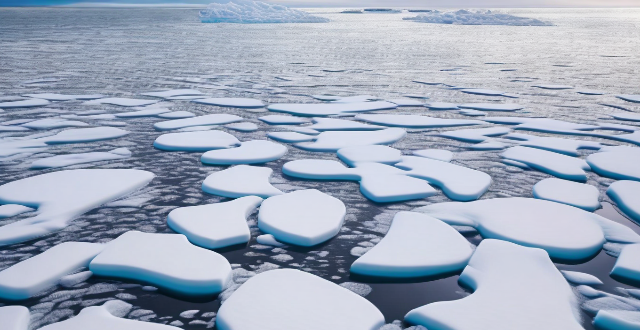Climate change is causing sea levels to rise, which can have devastating consequences on coastal communities and ecosystems. The melting of ice sheets in Greenland and Antarctica, thermal expansion, loss of coastal wetlands, and increased erosion and flooding are all impacts of climate change on sea levels. It is essential to take action to mitigate the effects of climate change and protect our planet's ecosystems and communities from further harm.

Impacts of Climate Change on Sea Levels
Introduction
Climate change is a global phenomenon that has been affecting the Earth's ecosystems for decades. One of the most significant impacts of climate change is the rise in sea levels, which can have devastating consequences on coastal communities and ecosystems.
Melting of Ice Sheets
The melting of ice sheets in Greenland and Antarctica is one of the primary causes of rising sea levels. As the planet warms, the ice sheets are melting at an alarming rate, causing more water to flow into the oceans. This increased volume of water raises the sea level, which can lead to flooding and erosion along coastlines.
Thermal Expansion
Another factor contributing to rising sea levels is thermal expansion. As the Earth's temperature increases, so does the temperature of the oceans. Warmer water takes up more space than colder water, leading to an increase in sea levels. This process is known as thermal expansion and is responsible for about half of the current sea level rise.
Loss of Coastal Wetlands
Rising sea levels can also lead to the loss of coastal wetlands, which are important habitats for many species of plants and animals. As sea levels rise, saltwater intrudes into these areas, making it difficult for freshwater plants and animals to survive. This loss of habitat can have a cascading effect on the entire ecosystem, leading to a decline in biodiversity and other ecological problems.
Increased Erosion and Flooding
Rising sea levels can also cause increased erosion and flooding along coastlines. Higher sea levels mean that storm surges during hurricanes and other extreme weather events will be higher and more damaging than they would be otherwise. This can lead to property damage, loss of life, and disruption of local economies.
Summary
In conclusion, climate change has had a significant impact on sea levels around the world. The melting of ice sheets, thermal expansion, loss of coastal wetlands, and increased erosion and flooding are all consequences of rising sea levels caused by climate change. It is essential that we take action to mitigate the effects of climate change and protect our planet's ecosystems and communities from further harm.